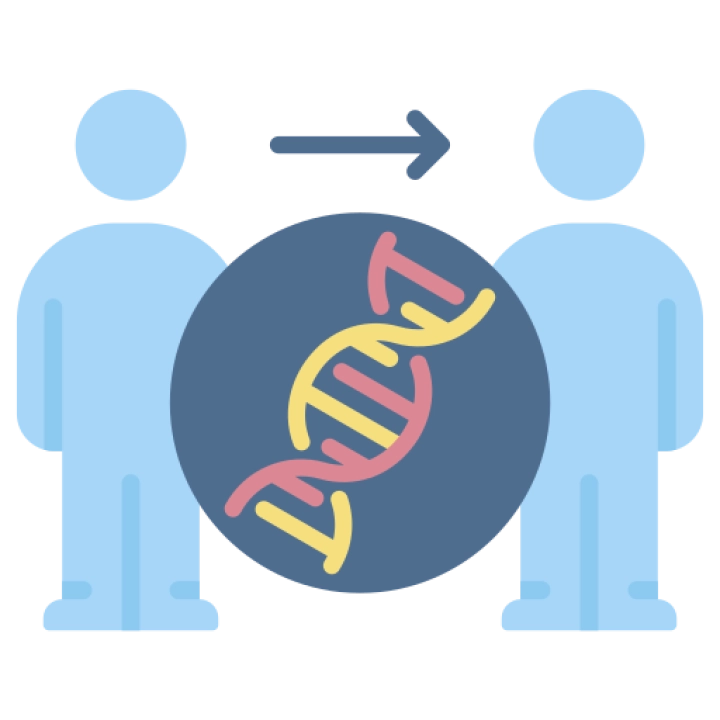College: Engineering
This program provides a comprehensive understanding of the principles and practices of molecular biology and genetics, focusing on the study of DNA, RNA, proteins, and genetic mechanisms. Students explore key areas like gene expression, genetic engineering, genomics, and molecular diagnostics. The program emphasizes laboratory skills, analytical thinking, and the application of molecular and genetic techniques to address biological questions. Graduates are prepared for careers in biomedical research, genetic counseling, biotechnology, and pharmaceuticals.
Learning Objectives:
- Understand the fundamentals of molecular biology and genetics.
- Develop skills in laboratory techniques such as PCR, gel electrophoresis, and DNA sequencing.
- Learn genetic engineering and gene editing techniques (e.g., CRISPR).
- Explore the role of molecular biology in understanding diseases and developing treatments.
- Understand the principles of genomics and bioinformatics.
- Analyze challenges and opportunities in the fields of molecular biology and genetics.
- Develop critical thinking and problem-solving skills for research projects.
Main Curriculum:
- Introduction to Molecular Biology and Genetics
- Overview of the field, its history, and importance in biological sciences.
- Synthesis of DNA, RNA, and Proteins
- Study of DNA structure, replication, transcription, and translation.
- Techniques for analyzing gene expression and protein function.
- Genetic Engineering and Biotechnology
- Principles of recombinant DNA technology, gene cloning, and gene editing.
- Techniques for manipulating genetic material for research and applications.
- Genomics and Bioinformatics
- Basics of genome sequencing, annotation, and analysis.
- Techniques for using bioinformatics tools to study genetic data.
- Molecular Diagnostics and Diseases
- Exploring molecular techniques for diagnosing genetic disorders and diseases.
- Techniques for developing molecular therapies and personalized medicine.
- Gene Regulation and Epigenetics
- Study of gene regulation mechanisms, including transcription factors and epigenetic modifications.
- Techniques for understanding gene control in different cellular contexts.
- Laboratory Techniques in Molecular Biology
- Practical training in PCR, gel electrophoresis, DNA sequencing, and other molecular techniques.
- Techniques for conducting experiments and analyzing molecular data.
- Emerging Trends in Molecular Biology and Genetics
- Analysis of innovations such as CRISPR, synthetic biology, and single-cell genomics.
- Techniques for adapting to new trends and technologies in the field.
- Capstone Project in Molecular Biology and Genetics
- A realistic project to apply acquired skills in genetic research, diagnostics, or biotechnology.
- Techniques for delivering a comprehensive solution in molecular biology.
Assessment Methods:
- Laboratory experiments and research projects.
- Written assignments in molecular biology, genetics, and bioinformatics.
- Group projects in genetic engineering and molecular diagnostics.
- Participation in internships or fieldwork with research institutions, biotech companies, or healthcare organizations.
Recommended Textbooks:
- "Molecular Biology of the Cell" by Bruce Alberts et al.
- "Genetics: Analysis and Principles" by Robert J. Brooker.
- "Molecular Cloning: A Laboratory Manual" by Michael R. Green and Joseph Sambrook.
- "Introduction to Genomics" by Arthur M. Lesk.
Prerequisites:
Basic knowledge of biology, chemistry, or genetics is recommended. Suitable for students in biology, biochemistry, and related fields.
Duration:
Typically 4 years, including coursework, lab work, and internships.
Certification:
Graduates may receive a degree in molecular biology, genetics, or a related field.
Target Audience:
Aspiring molecular biologists, geneticists, biomedical researchers, and biotechnology experts seeking to excel in the study and application of molecular and genetic principles. This program equips students with technical, analytical, and research skills necessary to excel in molecular biology and genetics, driving advancement in biomedical research and genetic technologies.













